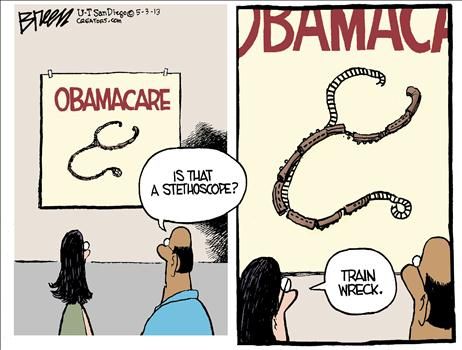Monthly Archives: May 2013
Reason.com: Are All US Phone Calls Being Recorded?
The real capabilities and behavior of the US surveillance state are almost entirely unknown to the American public because, like most things of significance done by the US government, it operates behind an impenetrable wall of secrecy. But a seemingly spontaneous admission this week by a former FBI counterterrorism agent provides a rather startling acknowledgment of just how vast and invasive these surveillance activities are.
Over the past couple days, cable news tabloid shows such as CNN’s Out Front with Erin Burnett have been excitingly focused on the possible involvement in the Boston Marathon attack of Katherine Russell, the 24-year-old American widow of the deceased suspect, Tamerlan Tsarnaev. As part of their relentless stream of leaks uncritically disseminated by our Adversarial Press Corps, anonymous government officials are claiming that they are now focused on telephone calls between Russell and Tsarnaev that took place both before and after the attack to determine if she had prior knowledge of the plot or participated in any way.
On Wednesday night, Burnett interviewed Tim Clemente, a former FBI counterterrorism agent, about whether the FBI would be able to discover the contents of past telephone conversations between the two. He quite clearly insisted that they could.
—-
Click below for the full article.
http://reason.com/24-7/2013/05/06/are-all-us-phone-calls-being-recorded
Adam VS The Santorum Sweater Vest
Ron Paul Criticizes Boston Lockdown: ‘We Had Martial Law Out There,’ ‘It’s Criminal’
Reason.com: When Cops Claimed the Right to Search Anyone Who “Causes Fear in a Community”
Radley Balko has published a series of stories at The Huffington Post that use the government’s response to the marathon bombings as a newshook to write about Boston’s recurring role in the history of militarized policing. The most interesting article in the sequence, I think, is the segment on the modern drug war. Here’s the setup:
In the early 1980s, Boston authorities introduced widespread stop-and-frisks, barricades, and other high-intensity policing tactics in high-crime neighborhoods like Roxbury and Matapan. Critics claimed police were implementing a “search on sight” policy of black men in some neighborhoods, doing away even with the low bar of needing reasonable suspicion before conducting stop-and-frisks. Police admitted a search-on-sight policy, but only for anyone known to be or suspected of being in a gang, along with anyone who associates with those people. They also claimed to be following a vague policy that allowed them to search anyone they felt “causes fear in a community.”
According to a subsequent lawsuit, black men were stopped, patted down, and in some cases strip searched for no more than wearing the sports logo of a particular professional sports team. A Boston Globe investigation found 15 people who had been stripped searched on the street, but were never arrested.
State Sen. William Owens said the tactics were alienating an entire generation of black men, and that had effectively imposed martial law on some communities. Tensions boiled over in 1989 when a plainclothes officer shot 30-year-old Rolando Car during a stop-and-frisk after mistaking Carr’s keys for a gun.
At another point, “Residents of Lawrence were issued passes that they had to show to get into and out of the neighborhood. Anyone entering Lawrence had their vehicle license plate documented by police manning a barricade. A letter was then sent to the registered owner of the vehicle to let him know the car had been spotted in Lawrence.” The police chief, Balko notes, “described the tactics as a form of community policing.”
—-
Click here for the full article.
http://reason.com/blog/2013/05/06/when-cops-claimed-the-right-to-search-an
Reuters: Fight expected in House on online sales tax
The Senate voted overwhelmingly on Monday to give states the power to enforce their sales tax laws on online purchases, but the legislation faces a tougher fight in the Republican-controlled House of Representatives.
The Democratic-controlled Senate voted 69 to 27 to back the measure, which pits brick-and-mortar stores like Wal-Mart Stores Inc and cash-hungry state governments against such Web retailers as eBay Inc and Republicans wary of new tax measures.
“Call me a conservative, but I believe the right approach to tax fairness is to reduce rates — not force higher rates onto others,” said Tom Graves, a House Republican from Georgia.
House Speaker John Boehner plans to send the bill to the House Judiciary Committee, a senior Republican aide said. That will mean hearings ahead. The Senate uncharacteristically bypassed this step.
Judiciary Committee Chairman Robert Goodlatte, a Republican, has reservations about the legislation, including its complexity and potential impact on small businesses, a spokeswoman said.
Goodlatte has yet to schedule any hearings on it, she said.
Backers of the measure include major traditional retailers Wal-Mart andBest Buy Co Inc, as well as e-tailing giant Amazon.com Inc, which wants to simplify its U.S. state sales tax payments.
Opponents include many other online merchants such as eBay, Overstock.com Inc and anti-tax activist Grover Norquist. Lawmakers from states without sales taxes – like Montana, Oregon and New Hampshire – largely oppose the measure.
States that charge sales tax have largely been unable to require e-tailers to collect it from purchasers unless the e-tailer had a physical presence in the state. Otherwise, consumers are supposed to pay the tax, but very few do.
Some states have made separate arrangements with Amazon on the issue, while others have not.
———–
Click below for the full article.
http://www.reuters.com/article/2013/05/07/net-us-usa-tax-internet-idUSBRE9450QZ20130507
Lew Rockwell: Another Nail in the Neocon Coffin
The recent opening of the Ron Paul Institute for Peace and Prosperity was a watershed moment in American history. There has never been anything quite like it. Ideologically diverse, the Ron Paul Institute reaches out to all Americans, and indeed to people all over the world, who find the spectrum of foreign-policy opinion in the United States to be unreasonably narrow. Until Ron Paul and his new institute, there was no resolutely anti-interventionist foreign-policy organization to be found.
Neoconservatives have not responded warmly to the announcement of Ron’s new institute. Whatever their particular gripes, we can be absolutely certain of the real reason for their unhappiness: they have never faced systematic, organized opposition before.
The Democrats would see the earth tumble into the sun before supporting nonintervention abroad, so they pose no fundamental problem for the neocons. Ron Paul, on the other hand, is real opposition, and he can mobilize an army. The neocons know it. What’s Tim Pawlenty up to these days? Where are his legions of well-read young fans who seek to carry on his philosophy? You see the point.
For the first time, strict nonintervention will have a permanent voice in American life. It is another nail in the neocon coffin. The neocons know they are losing the young. Bright kids who believe in freedom aren’t rallying to Mitt Romney or David Horowitz, and, like anyone with a critical mind and a moral compass, they are not going along with the regime’s war propaganda.
At this historic moment, I thought it might be appropriate to set down some thoughts on war – a manifesto for peace, as it were.
(1) Our rulers are not a law unto themselves.
Our warmakers believe they are exempt from normal moral rules. Because they are at war, they get to suspend all decency, all the norms that govern the conduct and interaction of human beings in all other circumstances. The anodyne term “collateral damage,” along with perfunctory and meaningless words of regret, are employed when innocent civilians, including children, are maimed and butchered. A private individual behaving this way would be called a sociopath. Give him a fancy title and a nice suit, and he becomes a statesman.
Let us pursue the subversive mission of applying the same moral rules against theft, kidnapping, and murder to our rulers that we apply to everyone else.
(2) Humanize the demonized.
We must encourage all efforts to humanize the populations of countries in the crosshairs of the warmakers. The general public is whipped into a war frenzy without knowing the first thing – or hearing only propaganda – about the people who will die in that war. The establishment’s media won’t tell their story, so it is up to us to use all the resources we as individuals have, especially online, to communicate the most subversive truth of all: that the people on the other side are human beings, too. This will make it marginally more difficult for the warmakers to carry out their Two Minutes’ Hate, and can have the effect of persuading Americans with normal human sympathies to distrust the propaganda that surrounds them.
(3) If we oppose aggression, let us oppose all aggression.
If we believe in the cause of peace, putting a halt to aggressive violence between nations is not enough. We should not want to bring about peace overseas in order that our rulers may turn their guns on peaceful individuals at home. Away with all forms of aggression against peaceful people.
(4) Never use “we” when speaking of the government.
The people and the warmakers are two distinct groups. We must never say “we” when discussing the US government’s foreign policy. For one thing, the warmakers do not care about the opinions of the majority of Americans. It is silly and embarrassing for Americans to speak of “we” when discussing their government’s foreign policy, as if their input were necessary to or desired by those who make war.
But it is also wrong, not to mention mischievous. When people identify themselves so closely with their government, they perceive attacks on their government’s foreign policy as attacks on themselves. It then becomes all the more difficult to reason with them – why, you’re insulting my foreign policy!
Likewise, the use of “we” feeds into war fever. “We” have to get “them.” People root for their governments as they would for a football team. And since we know ourselves to be decent and good, “they” can only be monstrous and evil, and deserving of whatever righteous justice “we” dispense to them.
The antiwar left falls into this error just as often. They appeal to Americans with a catalogue of horrific crimes “we” have committed. But we haven’t committed those crimes. The same sociopaths who victimize Americans themselves every day, and over whom we have no real control, committed those crimes.
(4) War is not “good for the economy.”
A commitment to peace is a wonderful thing and worthy of praise, but it needs to be coupled with an understanding of economics. A well-known US senator recently deplored cuts in military spending because “when you cut military spending you lose jobs.” There is no economic silver lining to war or to preparation for war.
Those who would tell us that war brings prosperity are grossly mistaken, even in the celebrated case of World War II. The particular stimulus that war gives to certain sectors of the economy comes at the expense of civilian needs, and directs resources away from the improvement of the common man’s standard of living.
Ludwig von Mises, the great free-market economist, wrote, that “war prosperity is like the prosperity that an earthquake or a plague brings. The earthquake means good business for construction workers, and cholera improves the business of physicians, pharmacists, and undertakers; but no one has for that reason yet sought to celebrate earthquakes and cholera as stimulators of the productive forces in the general interest.”
Elsewhere, Mises described the essence of so-called war prosperity: it “enriches some by what it takes from others. It is not rising wealth but a shifting of wealth and income.”
(5) Support the free market? Then oppose war.
Ron Paul has restored the proper association of capitalism with peace and nonintervention. Leninists and other leftists, burdened by a false understanding of economics and the market system, used to claim that capitalism needed war, that alleged “overproduction” of goods forced market societies to go abroad – and often to war – in search for external markets for their excess goods.
This was always economic nonsense. It was political nonsense, too: the free market needs no parasitical institution to grease the skids for international commerce, and the same philosophy that urges nonaggression among individual human beings compels nonaggression between geographical areas.
—–
Click below for the full article.
http://www.24hgold.com/english/news-gold-silver-another-nail-in-the-neocon-coffin.aspx?article=4355092296G10020&redirect=false&contributor=Lew+Rockwell
Reuters: U.S. appeals court strikes down mandate on union rights
The National Labor Relations Board violated the law when it required U.S. businesses to put notices in their workplaces and on their websites informing employees of their right to unionize, a federal appeals court ruled on Tuesday.
A unanimous three-judge panel of the U.S. Court of Appeals for the District of Columbia Circuit struck down the rule, finding that federal law prohibits the labor board from punishing a business for speech, or lack of it, as long as the business does not issue threats.
Freedom of speech “necessarily protects … the right of employers (and unions) not to speak,” Judge Raymond Randolph wrote for the appeals court.
In mandating the notices in 2011, a majority of the labor board appointed by President Barack Obama said that employees cannot fully exercise their rights unless they know what their rights are.
Business trade associations sued within days, arguing that the “11-by-17” posters violated corporate speech rights.
The ruling for the trade associations, including the National Association of Manufacturers, is the second major defeat at the appeals court for the labor board this year.
In January, the court invalidated Obama’s appointments to the board during a period of congressional inactivity. The Obama administration has since asked the U.S. Supreme Court to reverse the ruling.
—–
Click below for the article on Reuters.com
http://www.reuters.com/article/2013/05/07/us-usa-courts-laborboard-idUSBRE9460LD20130507
Business 2 Community: U.S. Dollar to Become the Next Yen?
In its latest meeting minutes, the Federal Reserve said it will continue with quantitative easing, creating $85.0 billion in new money monthly, in order to bring economic growth to the U.S. economy. (Source: Federal Reserve, May 1, 2013.)
The Federal Reserve, once again, didn’t provide any clear indication as to when it will end the quantitative easing; rather, the central bank stated it will continue to do the same “until the outlook for the labor market has improved substantially in context of price stability.” (Source: Ibid.)
The Federal Reserve has already increased its balance sheet to over $3.0 trillion, and if it continues its quantitative easing at this pace, its balance sheet will balloon even more, possibly even reaching $4.0 trillion—or even $5.0 trillion—in a very short period of time.
This is troublesome news, dear reader. The more money created out of thin air via quantitative easing, the more the fundamentals of the reserve currency, the U.S. dollar, deteriorate.
As I have mentioned in these pages before, we only need to look at the Japanese economy to see quantitative easing is not a viable option for us.
The Japanese currency has plummeted since the Bank of Japan revved up its quantitative easing. Just look at the chart below of the Japanese yen compared to other major currencies in the global economy; it seems as if the currency has fallen off a cliff. If we keep up with all this money printing, the U.S. dollar may eventually look the same!
Chart courtesy of www.StockCharts.com
A falling U.S. dollar will drag down the buying power of Americans even further, as they are already struggling to keep up with their expenses. What we could purchase for $1.00 in the year 2000 now costs us $1.35. (Source: Bureau of Labor Statistics, last accessed May 3, 2013.)
I have yet to see any real economic growth in the U.S. economy as it was promised when quantitative easing was first introduced after the financial crisis. Quantitative easing is working to make big bank balance sheets strong and to create inflation, but I don’t see any economic growth being created by it.
I am looking at the Japanese economy as the best example of a country failing with long-term quantitative easing and what might be next for the U.S. economy and the dollar due to all this newly created money.
—-
Click below for the full article.
http://www.business2community.com/finance/u-s-dollar-to-become-the-next-yen-0486009







